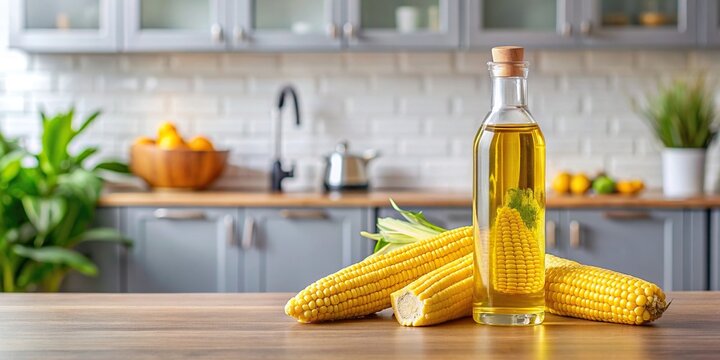Why Is Vegetable Oil Bad For You? Shocking Truth For Beauticians
In today's beauty and wellness circles, the discussion surrounding the health implications of what we consume is crucial, especially when it comes to cooking oils. Many beauticians, looking to provide their clients with the best beauty advice, are increasingly asked the question, 'why is vegetable oil bad for you?' Understanding the answers can not only enhance your professional recommendations but also contribute to long-lasting effects on skin health.
Vegetable oil, often hailed as a staple in many kitchens, might seem harmless at first glance. However, the reality is somewhat different. In this article, we will dive deep into the reasons why vegetable oil can be detrimental to health, especially for individuals keen on maintaining a vibrant and youthful appearance.

The Composition of Vegetable Oil
Before we delve into why vegetable oil is bad for you, its essential to understand what it is made of. Most vegetable oils are highly processed and typically consist of oils from soybeans, corn, canola, and sunflower. The extraction process often involves chemical treatments, leaving behind various residues hazardous to health. For information on what vegetable oil is made of, check out this detailed guide.
High Omega-6 Fatty Acid Content
One of the main reasons why vegetable oil poses health risks is its high levels of omega-6 fatty acids. While these fats are essential for our body, consuming them in disproportionate amounts can lead to chronic inflammation. As beauticians, we know how vital inflammation is to various skin issues, from acne to eczema. A balanced intake of omega-3 and omega-6 is necessary for healthy skin, hence why excessive omega-6 is something to be wary of.
Trans Fats and Chemical Processing
Many vegetable oils undergo processes that can lead to the creation of trans fats, which are harmful to cardiovascular health. Trans fats can alter your bodys lipid levels, contributing to obesity and related health issues, negatively impacting your skin's texture and overall appearance. For instance, if you're interested in alternative oils or methods, explore this resource on substitutes.
The Connection Between Vegetable Oil and Skin Health
As beauticians, understanding the intricate relationship between dietary choices and skin health is pivotal. Consuming vegetable oils can lead to various skin problems, including premature aging, dullness, and a decrease in overall skin vitality.
Increased Acne and Breakouts
The high omega-6 levels can lead to inflammation, linked directly to various types of acne. As clients ask for solutions to their skin woes, guiding them away from vegetable oils and promoting anti-inflammatory oils like olive or coconut oil can benefit their skin health.
Impaired Skin Barrier Function
The detrimental effects of these oils don't stop there. A compromised skin barrier due to poor dietary choices can lead to skin irritations and conditions such as psoriasis. Knowing why vegetable oil is bad for you allows you to produce informed recommendations to your clients, fostering their trust in your expertise.

Recommendations for Healthier Alternatives
As a beautician, promoting healthier options is crucial. Suggesting beneficial oils while explaining why vegetable oil is bad for you can create a more holistic approach to beauty.
Coconut Oil
Coconut oil is rich in medium-chain triglycerides, promoting anti-inflammatory benefits for the skin. It can also act as a great moisturizer, making it an ideal recommendation for dry skin.
Olive Oil
Loaded with antioxidants and healthy fats, olive oil supports skin hydration and repairs the outer skin barrier, promoting a youthful complexion.

How to Dispose of Vegetable Oil Properly
Another aspect for beauticians to consider is the disposal of vegetable oil. Improper disposal can lead to environmental issues, and as beauty professionals, aligning with ethical practices is advisable. For guidance on truly eco-friendly methods, check out this article on disposal.
Conclusion
In conclusion, understanding why vegetable oil is bad for you can significantly influence not only your health but your clients skin health as well. Providing them with this vital information allows you to cultivate a more health-conscious clientele. As we promote a beauty ethos linked to wellness, steering clear of vegetable oil and opting for healthier, natural alternatives will aid in achieving remarkable beauty outcomes.
As an Amazon Associate, I earn from qualifying purchases.
FAQ
1. What are some health risks of consuming vegetable oil?
Vegetable oils are high in unhealthy omega-6 fatty acids, which can contribute to inflammation, obesity, and various health issues.
2. What are healthier alternatives to vegetable oil?
Healthier alternatives include olive oil, coconut oil, and avocado oil, which offer better nutritional profiles and skin benefits.
3. How can vegetable oil affect my skin?
Excessive use of vegetable oils can lead to skin conditions like acne and inflammation, negatively impacting skin texture and health.
4. What is the best way to dispose of vegetable oil?
The best way to dispose of vegetable oil is to safely seal it in a container and take it to a waste disposal facility that accepts oils. You can also look for recycling programs in your area.

